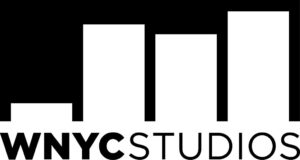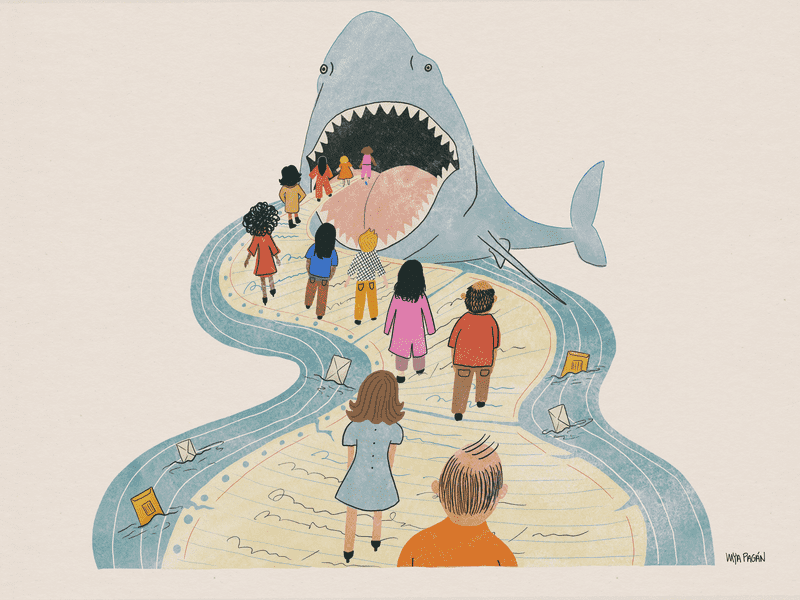WNYC Studios
and
Futuro Studios present
“La Brega: Stories of the Puerto Rican Experience”: a seven-part podcast series
Boricua.com is very proud to offer this podcast series. This podcast series presents information and background on some of the most important issues and events in Puerto Rico, some sad, some glad and some con mucho orgullo. Each week we will be promoting a new episode. We really enjoyed listening and we hope you enjoy them as well.
WNYC Studios and Futuro Studios present “La Brega: Stories of the Puerto Rican Experience”: a seven-part podcast series.
Available in English and Spanish.
Un podcast de siete episodios que combina elementos narrativos y del periodismo investigativo para revelar y reflexionar sobre cómo “la brega” ha definido muchos aspectos de la vida en Puerto Rico.
Creado por un equipo de periodistas, productores, músicos y artistas boricuas; presentado por Alana Casanova-Burgess
Episode 7. The End of The Promises
Puerto Rico’s relationship with the United States has long been a subject of intense debate. In 1952, Puerto Rico adopted a new status that was meant to decolonize the island. In English, we call it a “Commonwealth.” In Spanish, it’s called “Estado Libre Asociado”, or ELA. Puerto Ricans were promised for decades that this unique status meant they had a special kind of sovereignty while maintaining ties to the US. Now, a series of recent crises on the island have led many to question that promise, and to use the word “colony” more and more. In this episode, political anthropologist and El Nuevo Día columnist Yarimar Bonilla looks for those who still believe in the ELA, and asks what happens when a political project dies.
You can get more resources for related issues at the Puerto Rico Syllabus website.
Episode 7. Se acabaron las promesas
La relación que tiene Puerto Rico con los Estados Unidos siempre ha sido un tema de debate intenso. En 1952, Puerto Rico adoptó un nuevo status que prometía descolonizar la isla. En inglés le llama “Commonwealth”. En español, lo llamamos Estado Libre Asociado, o ELA. Por décadas se le prometió a los boricuas que este estatus era único porque les brindaba una autonomía especial junto al beneficio de mantener lazos profundos con Estados Unidos.
Ahora, en medio de crisis tras crisis, más personas están cuestionando esa promesa y usando la palabra colonia para describir la relación política con Estados Unidos.
En este episodio, la antropóloga política y columnista de El Nuevo Día, Yarimar Bonilla busca a las personas que todavía creen en él ELA, mientras se pregunta, ¿qué pasa cuando muere un proyecto político?
Pueden encontrar la pagina web del Puerto Rico Syllabus aqui.
Episode 6. The Bankruptcy Letters
Luis J. Valentín Ortiz from the Centro de Periodismo Investigativo tells a hidden story from Puerto Rico’s debt crisis, that of the micro-creditors — thousands of low-income retirees and former public employees with claims that the government may never pay, ranging from hundreds to thousands of dollars. As a federal judge prepares to make a decision on whether they’ll get paid, this episode asks: how can the government settle its many debts — not just monetary — with its citizens?
Episode 6. Las cartas de la quiebra
El periodista del Centro de Periodismo Investigativo, Luis J. Valentín Ortiz, cuenta la historia de los pequeños acreedores en la quiebra de Puerto Rico — miles de retirados y ex-empleados públicos que reclamaron al Gobierno dinero que quizás nunca recibirán. En momentos en que el tribunal federal se prepara para decidir sobre este tema, este episodio cuestiona: ¿Cómo el Gobierno está atendiendo las deudas que tiene, no solo las monetarias, con sus ciudadanos?
Puedes leer más sobre los acreedores sociales en este artículo del CPI.
Recomendamos este episodio de Radio Ambulante, producido por Luis Trelles, para más contexto sobre la deuda.
Episode 5. Basketball Warriors
Despite being a U.S. colony, Puerto Rico competes in sports as its own country on the world stage. Since the 70s, Puerto Rico’s national basketball team has been a pride of the island, taking home trophy after trophy. But in the 2004 at the Athens Olympics, the team was up against the odds, with an opening game against a U.S. Dream Team stacked with players like Lebron James and Allen Iverson. Futuro Media’s Julio Ricardo Varela tells the story of a basketball game that Puerto Ricans will never forget, and why he thinks now, more than ever, is a crucial moment to remember it.
Episode 5. Guerreros del basket
Aunque Puerto Rico es una colonia de Estados Unidos, la isla compite bajo su propia bandera en eventos deportivos internacionales. Desde la década de los 70 el equipo nacional de baloncesto ha sido fuente de orgullo para todo el archipiélago boricua, ganando torneo tras torneo en su región. Pero en las Olimpiadas del 2004 en Atenas, la escuadra nacional le tocó un juego donde las fichas no estaban a su favor: enfrentar al Dream Team de Estados Unidos con Lebron James, Tim Duncan, Dwayne Wade y Allen Iverson.
Julio Ricardo Varela de Futuro Media nos cuenta la historia de un juego que los boricuas nunca olvidaran… y porque el cree, que hoy más que nunca, es importante recordarlo.
Episode 4. Vieques and the Promise To Build Back Better
Weeks after Hurricane Maria, the Government of Puerto Rico accepted an emphatic suggestion from officials of the Federal Emergency Management Agency (FEMA), put it in writing as if it were its own decision, and celebrated it would be used to rebuild in a “resilient” way. On the island of Vieques — which has a very high rate of cancer — they were supposed to rebuild its only hospital, destroyed by the hurricane in 2017. Now, a young girl has died from lack of care, and a neglected community fights for their basic human right: access to quality medical services. Reporter Cristina del Mar Quiles from El Centro de Periodismo Investigativo explains how federal red tape has hindered hurricane recovery.
Episode 4. Vieques y la resiliencia que nunca llegó
Semanas después del huracán María, el Gobierno de Puerto Rico aceptó una sugerencia de parte de la Agencia Federal de Manejo de Emergencias, mejor conocida como FEMA en inglés. La pusieron por escrito y la presentaron al país como un logro y una herramienta para poder reconstruir de manera resiliente. ¿El primer proyecto en beneficiarse de este acuerdo? El único hospital en la isla municipio de Vieques. Al sol de hoy, más de tres años después, esta construcción no ha comenzado.
Episode 3. An Encyclopedia of Betrayal
Photographer Chris Gregory-Rivera examines the legacy of the surveillance files known in Puerto Rico as las carpetas — produced from a decades-long secret government program aimed at fracturing the pro-independence movement. Gregory-Rivera looks at las carpetas through the story of one activist family, the traitor they believed was close to them, and the betrayal that holds more mystery than they realize.
Episode 3. Una enciclopedia de traición
il fotógrafo Chris Gregory-Rivera examina el legado de “Las Carpetas” — los archivos de vigilancia estatal producidos por un programa de gobierno secreto que buscaba fracturar al movimiento pro-independencia en Puerto Rico. Gregory-Rivera enfoca esta mirada a las carpetas en la familia de un activista y la revelación de una traición que encierra un misterio revelador. ¿Qué pasa cuando no bregamos con nuestra historia?
Episode 2. Levittown, Where The Good Life Begins
Alana Casanova-Burgess traces back the story of the boom and bust of Levittown, a massive suburb that was founded on the idea of bringing the American middle-class lifestyle to Puerto Rico during a time of great change on the island. Casanova-Burgess (herself the granddaughter of an early Levittown resident) explores what the presence of a Levittown in Puerto Rico tells us about the promises of the American Dream in Puerto Rico.
Episode 2. Levittown, donde la buena vida comienza
Alana Casanova-Burgess traza la historia del crecimiento y eventual deterioro de Levittown, Toa Baja, un suburbio masivo que se fundó con la idea de traer el estilo de vida de la clase media estadounidense a Puerto Rico durante una época de gran transformación en la isla. Casanova-Burgess explora lo que el proyecto nos dice sobre nuestra historia y las promesas de vivir “el sueño americano” en Puerto Rico.
Episode 1. ¿Qué es la brega?
En este primer episodio, Alana Casanova-Burgess nos comparte un ejemplo para explicar que significa para los boricuas “bregar”. Para eso platica con Cheo Santiago, creador y mantenedor de la cuenta de redes sociales “Adopta un Hoyo” y con el escritor y profesor emérito de Princeton Arcadio Díaz Quiñones, quien hace unos veinte años escribió un ensayo muy influyente, “De Cómo y Cuándo Bregar”, donde usa la frase como un lente para entender mejor la experiencia boricua.
Entre hoyos, protestas y metáforas, Alana va encontrando cuanto se guarda en la brega, sus limitaciones y como la esperanza de un mejor Puerto Rico se asoma entre todo eso.
Episode 1. What is La brega?
In the first episode, host Alana Casanova-Burgess sets out to define la brega and to examine what it is. A brega implies a difficulty or challenge that for one reason or another cannot be solved or corrected. You just have to adapt. One such issue that is examined, is the potholes in Puerto Rico roads. This seemingly simple-to-fix issue is a real problem for Puerto Rican drivers and some of the solutions examined are not really solutions at all. Amidst potholes, protests and metaphors, Alana finds all the meanings that lie within “la brega”, how it sometimes asks too much of boricuas, and how the word has an innate sense of hope. Enjoy this first episode by clicking the podcast link below.
Cast and Crew
Alana Casanova-Burgess, Host
Marlon Bishop, Executive Producer
Ezequiel Rodríguez Andino, Producer
For a full list of the cast and crew that worked on this project – Meet the Team
Support Public Radio with Your Donation Today
Listener donations power NPR’s network of community based public radio stations. Your gift will be made to WNYC in New York.
Please make a Donation Here













